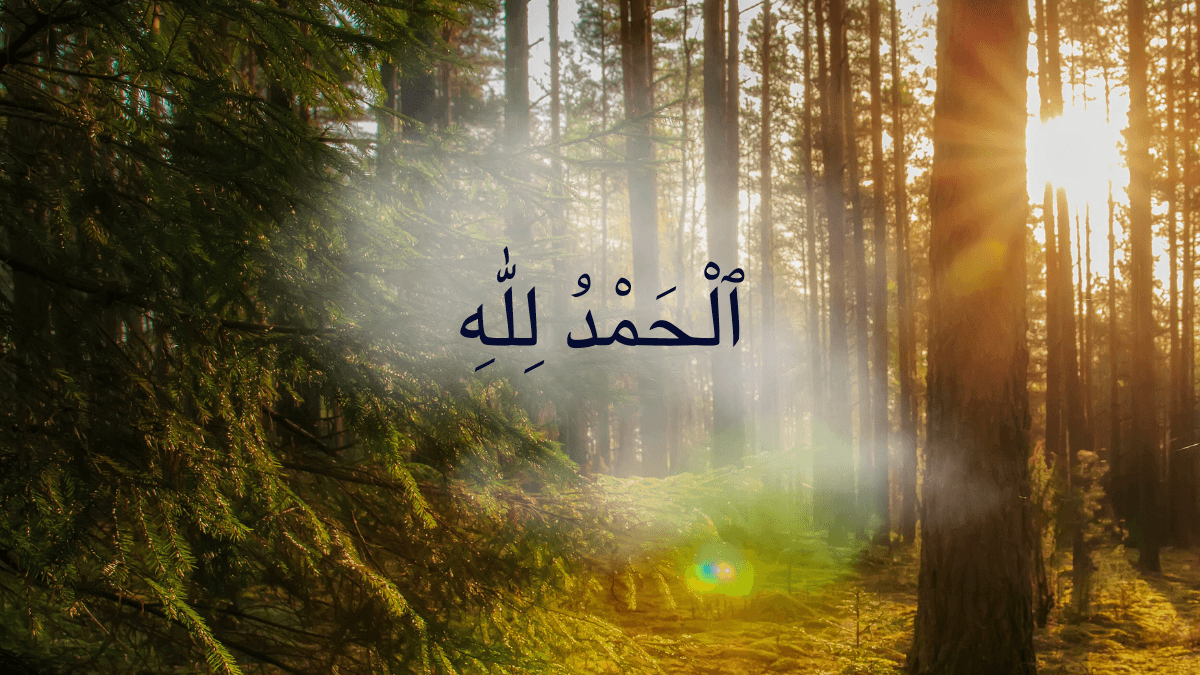Alhumdolillah: The Power of Gratitude in Islamic Tradition

Alhumdolillah is the best dua (prayer) for expressing gratitude to Allah (swt). It means “All praises and thanks to Allah”. We should always say Alhumdolillah for Allah (swt)’s favours that way Allah (swt) will bless us with more.
Allah (swt) says in the Qur’an 14:7 And [remember] when your Lord proclaimed, 'If you are grateful, I will surely increase you [in favor]; but if you deny, indeed my punishment is severe.”
The following is a beautiful story regarding being grateful to Allah (s.w.t).
Once Prophet Moses was going to talk to Allah (swt), and On the way he met a very rich man who asked him “Where he is going?” Prophet Moses said to talk to Allah (s.w.t).” The rich man said to give a message from him to Allah (swt). He said tell Allah (swt) “You have given me so much wealth I can’t handle it anymore don’t give me any more wealth.”
At this time a very poor man also met Prophet Moses this man was so poor he didn’t have clothes to even cover his private parts. He was sitting on the ground and was covering his private parts with sand.
He also requested Prophet Moses to give a message from him to Allah (swt) upon learning that Prophet Moses was going to meet Allah (s.w.t). He said Allah (swt) “Look at my condition you give to everybody when you will give me? I don’t even have clothes to cover my private parts.”
When Prophet Moses met Allah (swt) he first gave the message of the rich man to Allah (swt). “A rich man met me and he said to tell you to stop giving me wealth. You have given me so much that I can’t handle it anymore.”
Allah (swt) said “Give my message to my servant you stop doing Shukr (thanking me) and I will stop giving you.”
Then Prophet Moses said, "I met a very poor man his condition was such he didn’t even have clothes to cover his private parts he was covering his private parts with sand. His message is ‘Allah (swt) when will you give me? I have nothing.’"
Allah (swt) said, “Oh Moses for that poor man my message is tell him to start doing Shukr (thanking me) and I will start giving him.”
When Prophet Moses returned the rich man asked “O Prophet of Allah (swt) did you give my message to Allah (swt)?” Prophet Moses said “Yes, I did and Allah (swt) says, “Tell my servant that if he stops doing Shukr (thanking me) then I will stop giving him.”
The rich man said,” O Moses how can that be? How is that possible that I stop doing Shukr (thanking Allah (swt)) apart from that Shukr what do I have even when I had nothing I had the wealth of Shukr I can do everything but I can’t be deprived of the wealth of Shukr. O Moses whatever happens I will not stop doing Shukr (thanking Allah (swt)).”
Prophet Moses said, “If you don’t stop doing Shukr Allah (swt) will not stop giving you. If you keep on doing Shukr (thanking Allah (swt)) Allah (swt) will continue to give you.”
Then the poor man met Prophet Moses and said, “What about my message, did you give it to Allah (swt)?”
Propeht Moses said, "Allah (swt)’s message for you is ‘start doing Shukr (thanking me) and I will start giving you.’”
The poor man answered right away, “O Prophet of Allah (swt) what do I have to be thankful for I have nothing. What has Allah (swt) given me that I should be thankful for? I am covering my private parts with sand. What do I have to be thankful for what has Allah (swt) given me?”
The moment the poor man said those words a strong gust of wind came and blew away the sand he was using to cover his private parts.
This is the punishment of ungratefulness.
The moral of the story is to always be grateful to Allah (s.w.t) and thank him.
The best way to be grateful to Allah (swt) i.e do Shukr is to say “Alhumdolillah”.
This video teaches the english translation of the names of the qur'anic surahs via a series of multiple choice questions. The questions are taken and adapted from the Qur'anic Surahs activity book by naima shaikh available on Amazon.
Topics: Allah, Islam, Quran Values: Trust In Allah (Tawakkul)
Views: 1585
Related Suggestions

















